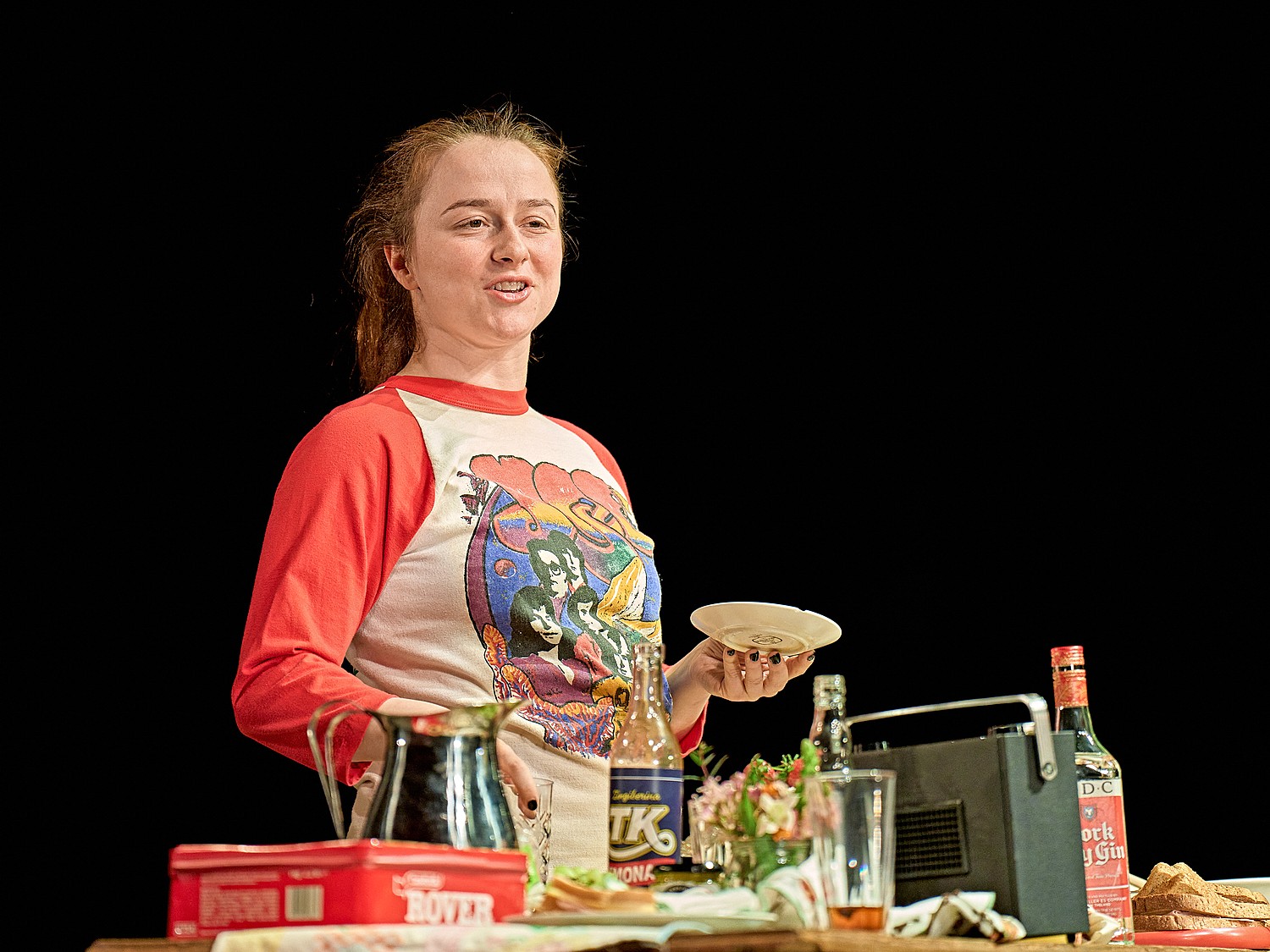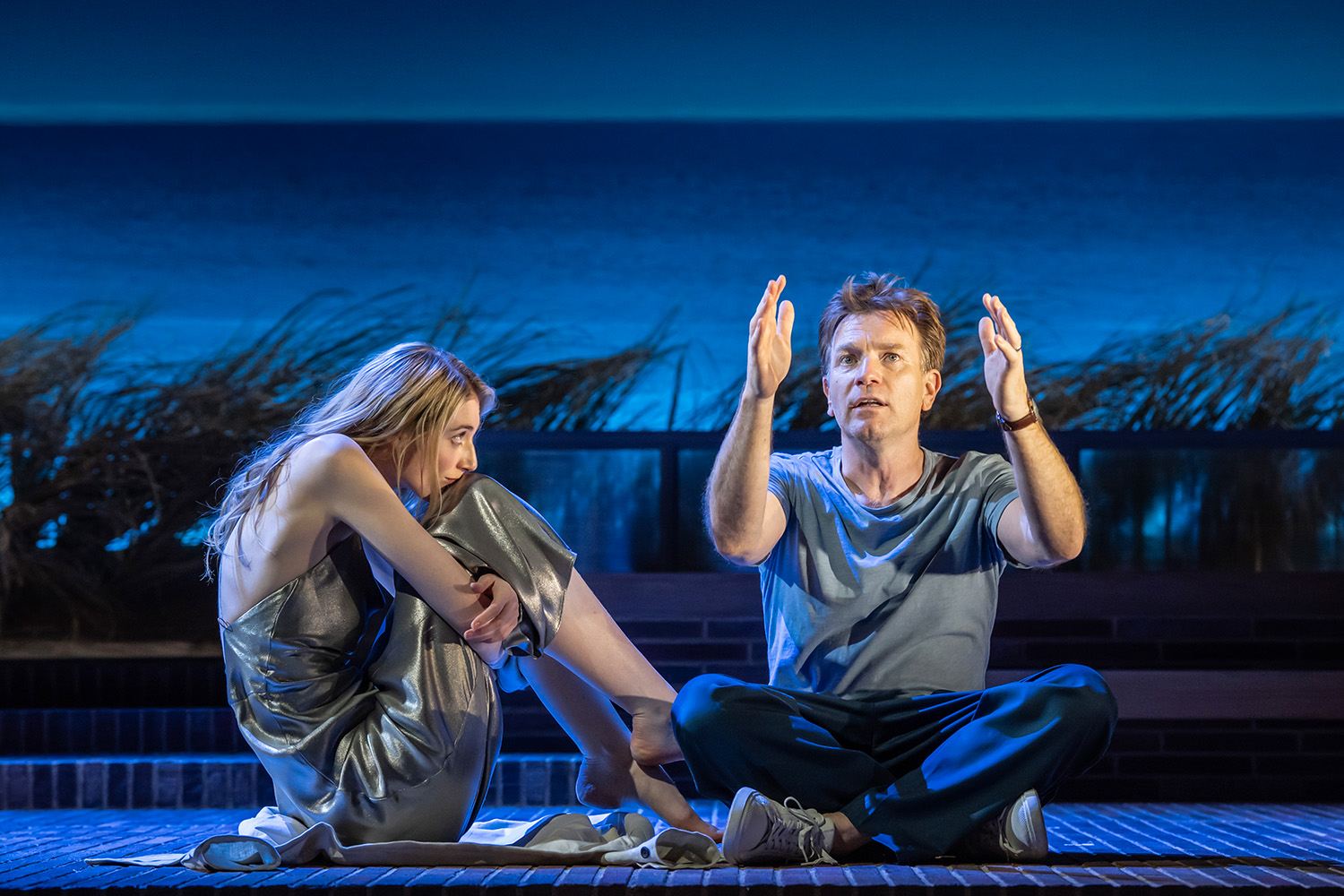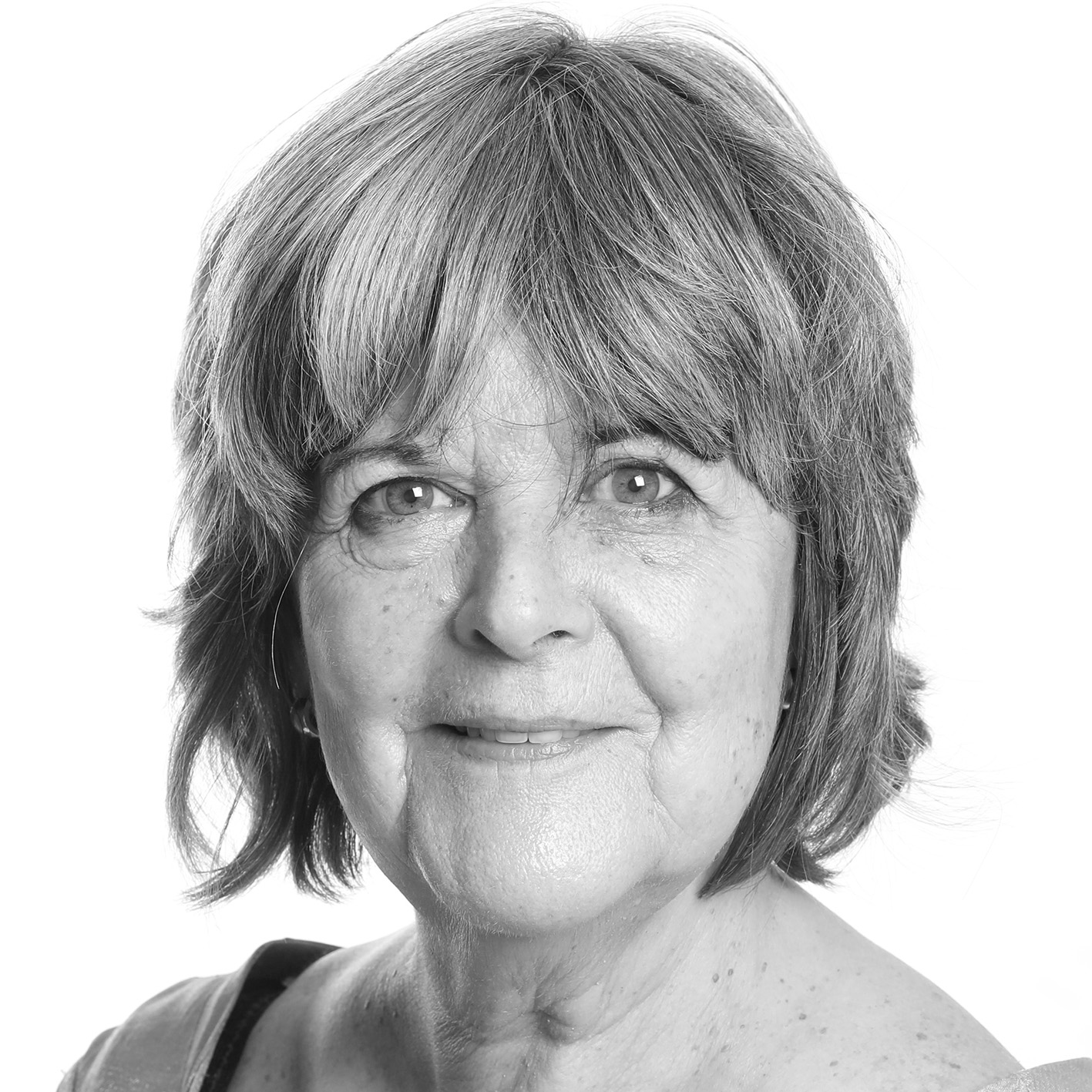My Master Builder
Wyndham’s, London WC2; until 12 July
The Brightening Air
Old Vic, London SE1; until 14 June
Martin Amis, who was not a fan of the theatre, warned me off this job 28 years ago. After all, he explained, there are only three playwrights: Shakespeare, Ibsen and Chekhov. I disagree, but sometimes it seems that dramatists are on his side. This column’s new plays both shadowbox with classic predecessors.
The New York-based playwright Lila Raicek, who has previously worked on Gossip Girl and whose first novel will appear next year, has written a blunt remistressing of Ibsen’s The Master Builder. More radical than a version but never losing sight of the original: the tweak in the title is the last line of Ibsen’s 1892 play.
My Master Builder goes to the nub of the priapic drama: an architect who specialises in towers worries that as he gets older he can no longer get up them and is fatally spurred on by an adoring young woman. To this, Raicek adds self-consciousness about the sexual symbolism, discussions of #MeToo and a diffused feminism.
Ibsen’s play could certainly do with a going over. But not this one. Ibsen produces heavy symbols, foggy dialogue and washed-out women (what happened to the writer of Hedda Gabler?).
Raicek, who transplants the action from 19th-century Norway to the Hamptons now, uncovers real debates – about the balance of power between old and young, the extent to which a forceful woman may also be victimised, the way buildings embody memories – but everything is made explicit: arguments are overspelled out, sexual possibilities awkwardly enacted.
There is no inner propulsion. It is as if the strong Hamptons light – wonderfully conjured by the great lighting designer Paule Constable – has flushed everything out by its glare and fade.
Newsletters
Choose the newsletters you want to receive
View more
For information about how The Observer protects your data, read our Privacy Policy
It is a puzzle that Michael Grandage, fleetest of directors, was drawn to this script, which makes actors shrivel. Ewan McGregor – a lupine star in Grandage’s Othello and sparky in Little Malcolm and His Struggle Against the Eunuchs – is stolidly unchanging as the builder. Elizabeth Debicki (of The Crown) has a pitiless task as the young woman: appropriately using her height to bend over others, she has little to do but slink in satin, gliding luminously, like an art nouveau lamp.
The crackle of the evening comes from Kate Fleetwood. As the architect’s wife, the most fully written role, she brings the snap of her Lady Macbeth, but glints also with loss, affection and unfulfilled potential. Let’s hope to see her in a mightier part soon.
Amid the explicitness is a question. Debicki’s character has written a novel based on her own experience: she is challenged to reveal its autobiographical basis. Raicek has explained that her engagement with Ibsen’s play was ignited by her own experience of being “a pawn” in the “psychosexual warfare” between “an eminent British couple” – in the Hamptons. Is she inviting us to probe who they are?
Conor McPherson’s new play would not have existed without Chekhov. The Brightening Air, which McPherson directs, is not a version of Uncle Vanya (he wrote one of those five years ago): it’s set on an Irish farm, takes its title from Yeats, and mentions fairies, pigs, priests and love-inducing water – from “a little tap” in the hills. Nevertheless, the plot and its lovelorn, land-hungry, dazed and drifting characters echo Chekhov. Among a family in the countryside, pain is slowly, humorously unrolled.

This is a rich tumble of an evening. More crammed and less evenly paced than McPherson’s glorious ballad to Dylan, Girl from the North Country (which returns to the Old Vic this summer), it is both realistic and woozy: Rae Smith’s design suggests this, with its sturdy furniture and melting background, where shadows are glimpsed through mist.
Even the smallest character is given biographical depth, as in Chekhov. Chris O’Dowd’s disruptive scapegrace is beautifully judged. Hannah Morrish and Brian Gleeson are wistful and alluring in the difficult roles of people both warm and desolate.
Still, the splendour of the evening is Rosie Sheehy. She has amazed me ever since I saw her seven years ago playing a sullen teenager in The Whale. Every time she appears on stage – as a football player in The Wolves, a crushed wife in Machinal – she moves up a notch, transforming not only herself but her possibilities.
In the play’s most startling role she is a young woman given to obsessions – about paint pigments and train routes. She is banshee-wild, then suddenly sweet when she sings at the piano. She creates a new speaking voice, for which harsh is too textured a word: full of feeling but absolutely solid; used like a weapon, it seems to occupy space on the stage.
When she sits sunken into herself and immobile, she seems physically to thicken and take on years, looking like one of those guards who used to scowl over Soviet treasures in museums.
Sheehy’s originality makes an evocative play unmissable. Here is proof that a playwright’s adapting and reacting may indeed bring a brightening.

